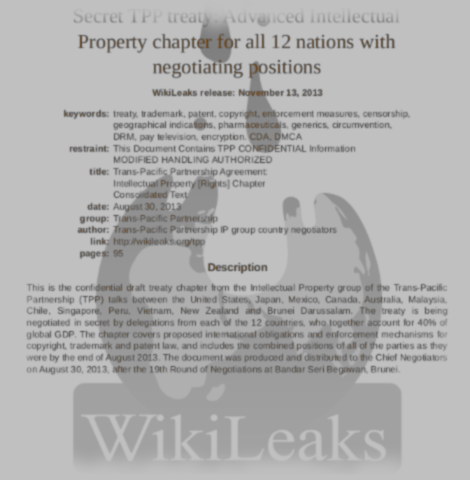

THE recently-leaked Trans-Pacific Partnership (TPP) document helped show that the copyright cartel runs governments [1], not just in the US but also abroad [2]. This even affects how people use their phones [3]. Analysis continues to come [4], including a longish peep at the impact on patents.
This summer the U.S. Government’s Internet Policy Task Force published a Green Paper signaling various copyright issues that need to be addressed. Among other things, the group proposed a “recalibration” of penalties for file-sharers, which currently reach $150,000 per shared file. The MPAA and RIAA, among others, have now responded to this suggestion, stating that the current punishments are proportional, and needed to deter others from file-sharing and related offenses.
The secretive multinational trade agreement the Trans-Pacific Partnership (TPP) "proves" that Wall St and Hollywood own Obama, according to MegaUpload and Mega founder Kim Dotcom.
In part two of Wired.co.uk's interview with the infamous entrepreneur, we talk about international copyright law, NSA surveillance, Hollywood's "backward, outdated licensing model", Barack Obama and Dotcom's political ambitions.
Even more examples of ill-informed thinking lurk in the Trans-Pacific Partnership, the SOPA/CISPA/PIPA redux
Last Thursday, Wikileaks released a draft text of the intellectual property (IP) chapter of the Trans-Pacific Partnership (TPP) agreement. The TPP is a free trade agreement currently been negotiated between 12 countries: the United States, Canada, Mexico, Peru, Chile, New Zealand, Australia, Singapore, Malaysia, Brunei, Vietnam, and Japan. Like many FTAs, the TPP has been negotiated in a secret, non-transparent fashion, with access to draft texts provided only to lobbyists and the like. Wikileak’s release of the IP chapter thus provides an important opportunity for academics, activists, and the public to examine what is being negotiated in their name.